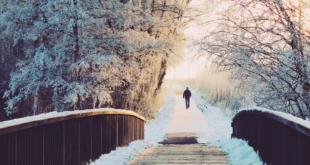Winter can be harsh on both your home and your wallet. Cold weather, snow, and ice not only make life uncomfortable but can also lead to higher energy bills and costly repairs if your home isn’t properly prepared. Fortunately, a little planning and some simple maintenance can keep your home safe, warm, and energy-efficient all winter long. Here are essential tips and tricks to get your home ready for the cold season.
Inspect and Clean Your Heating System
Before the first frost hits, have your furnace or boiler inspected and serviced. Replace filters, clean ducts, and ensure everything is running efficiently. A well-maintained heating system not only keeps your home warm but also reduces energy consumption.
Seal Drafts and Insulate
Cold air sneaking in through windows, doors, or attic spaces can make your heating system work overtime. Use weatherstripping, caulking, or door sweeps to seal gaps. Adding insulation to your attic, walls, and basement can prevent heat loss and lower energy bills.
Check Your Roof and Gutters
Winter weather can be tough on your roof. Inspect shingles for damage, replace any that are missing, and clear gutters of leaves and debris to prevent ice dams. Ice dams can cause leaks and structural damage, so keeping gutters clean is essential.
Protect Pipes From Freezing
Frozen pipes can burst and cause major water damage. Insulate exposed pipes in basements, attics, and crawl spaces. During extremely cold nights, allow faucets to drip slightly to keep water moving and prevent freezing.
Service Your Chimney and Fireplace
If you plan to use a fireplace, have the chimney cleaned and inspected. Creosote buildup can be a fire hazard, and a clean chimney ensures smoke and gases are properly vented.
Prepare Your Windows
Windows are major sources of heat loss. Consider adding thermal curtains, insulating film, or draft stoppers. Even small adjustments can make rooms feel warmer without cranking up the thermostat.
Winterize Outdoor Areas
Bring in or cover outdoor furniture to protect it from snow and ice. Drain and store garden hoses, and shut off outdoor water supply lines to prevent pipe damage. Consider adding salt or sand to walkways to prevent slippery surfaces.
Check Smoke and Carbon Monoxide Detectors
Winter means more indoor heating, which can increase the risk of carbon monoxide exposure. Test smoke and CO detectors, replace batteries, and make sure they’re functioning properly.
Stock Up on Essentials
Prepare for unexpected winter storms by keeping essentials on hand: bottled water, non-perishable food, blankets, flashlights, and a first-aid kit. Having these supplies ensures you’re ready for emergencies.
Consider Energy-Efficient Upgrades
Winter is a great time to invest in energy-saving improvements. Programmable thermostats, energy-efficient windows, or added insulation can reduce your bills and make your home more comfortable year-round.
Preparing your home for winter doesn’t have to be overwhelming. By taking proactive steps — from sealing drafts to servicing your heating system — you can stay warm, protect your property, and save money on energy costs. A little effort now will make your winter months safer, cozier, and far less stressful.
 Homeowners Club If you are one of the 15 million homeowners in the UK, the free to join online Homeowners Club is for you.
Homeowners Club If you are one of the 15 million homeowners in the UK, the free to join online Homeowners Club is for you.








